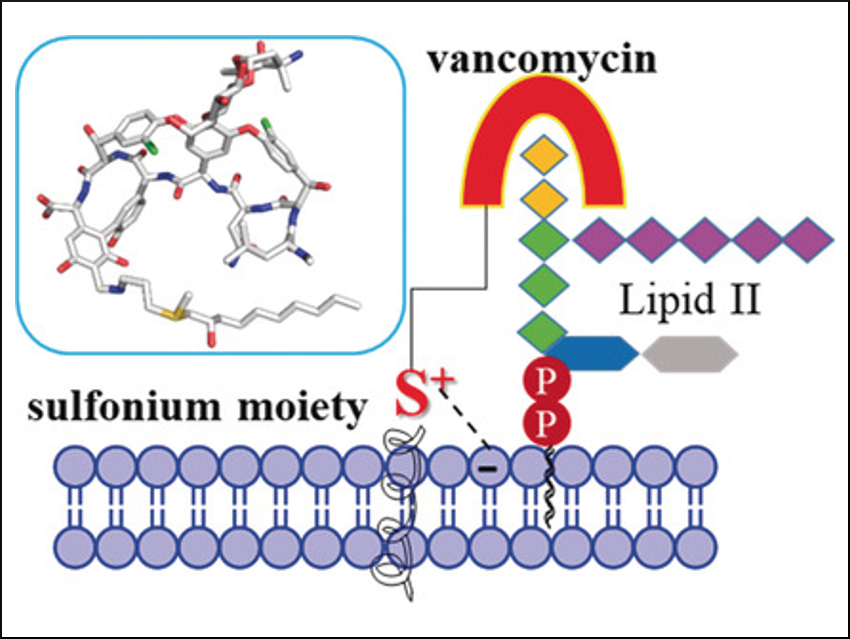Multidrug-resistant bacterial infections have become an issue for public health. The glycopeptide antibiotic vancomycin is the “last resort” for severe bacterial infections. However, the number of vancomycin-resistant bacteria is rising and alternative treatments are needed.
Lefu Lan, Wei Huang, University of the Chinese Academy of Sciences, Beijing, China, and Shanghai Institute of Materia Medica, China, and colleagues have developed a series of sulfonium-vancomycin derivatives that provide a new strategy to combat drug-resistant bacteria. The team attached beta‐hydroxyl sulfonium substituents at four different positions of vancomycin using a reaction between an epoxide and a methylthio group. The positively charged sulfonium enhances the interaction of vancomycin with the negatively charged parts of the bacterial wall (pictured). This disrupts the bacterial membrane and kills the bacteria.
The team demonstrated the improved activity of these sulfonium derivatives against vancomycin-resistant Staphylococcus aureus, Enterococci, and certain Gram-negative bacteria using in vitro and in vivo assays. This work provides a new design approach for antibiotic glycopeptides.
- Sulfonium, an Underestimated Moiety for Structural Modification, Alters the Antibacterial Profile of Vancomycin Against Multidrug-Resistant Bacteria,
Dongliang Guan, Feifei Chen, Yunguang Qiu, Bofeng Jiang, Likun Gong, Lefu Lan, Wei Huang,
Angew. Chem. Int. Ed. 2019.
https://doi.org/10.1002/anie.201902210




